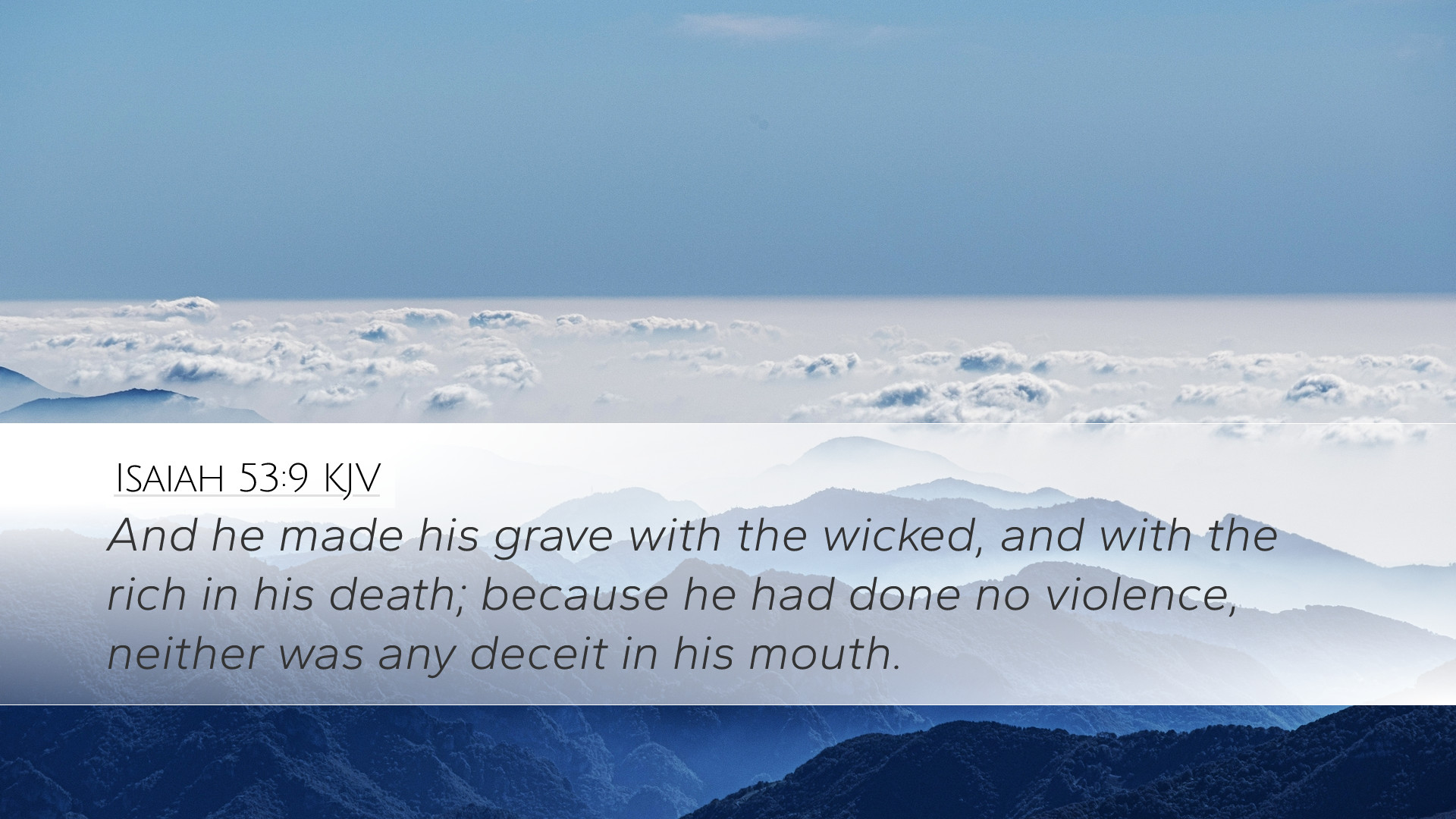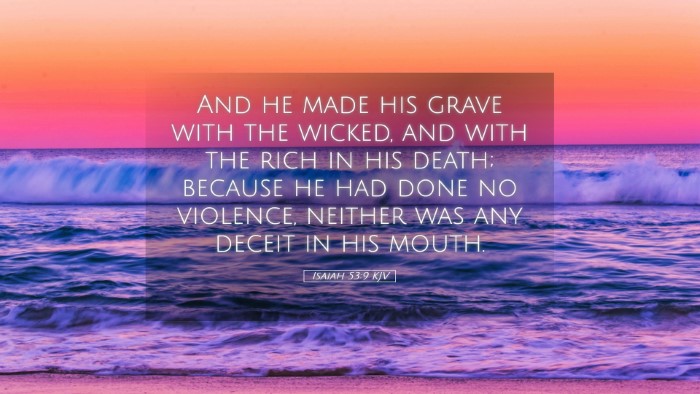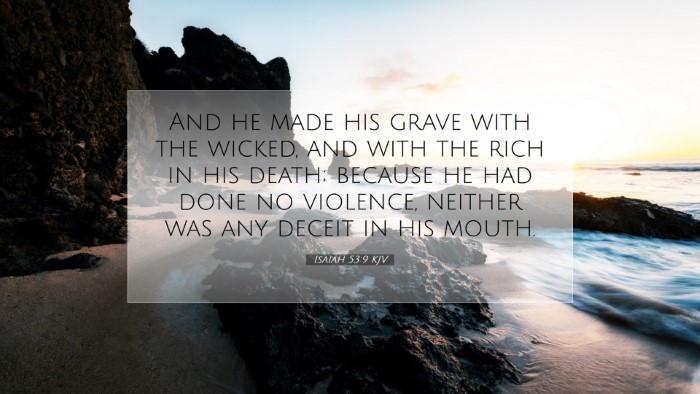Commentary on Isaiah 53:9
Verse Context: Isaiah 53:9 falls within the famous passage known as the "Suffering Servant," which depicts the Messiah's suffering, humiliation, and ultimate triumph. This chapter presents profound theological insights about redemption and the nature of Christ’s sacrifice.
Text of Isaiah 53:9
“And he made his grave with the wicked and with the rich in his death; because he had done no violence, neither was any deceit in his mouth.”
Interpretation and Themes
This verse succinctly summarizes aspects of the Messiah’s suffering and the paradox of his burial. It carries significant implications for understanding the character and mission of Jesus Christ.
1. The Grave of the Wicked
Henry's Insight: Matthew Henry emphasizes that the Messiah was regarded and treated as a criminal. Despite living a life of perfection, he faced the disgrace reserved for the wicked. Henry underscores that Christ bore our sins, thus bearing the brunt of judgment meant for the guilty.
Barnes' Take: Albert Barnes explains this phrase as a foreshadowing of Christ’s crucifixion and subsequent placement in a tomb, which was seemingly ‘with the wicked.’ This highlights the social scorn associated with the mode of his death. Jesus was crucified amongst thieves, showing that he was reckoned as a transgressor.
2. The Rich in His Death
Clarke's Commentary: Adam Clarke points out the irony that the same incarnate God who lived in humility would eventually be buried in the tomb of a wealthy man, Joseph of Arimathea. This underscores divine providence, illustrating the fulfillment of Isaiah's prophecy against the expectations of the world.
3. The Innocence of the Servant
Spiritual Reflection: The verse emphasizes the Servant's innocence. “Because he had done no violence, neither was any deceit in his mouth.” Here, we see Christ’s fulfillment of righteousness and justice. Both Henry and Barnes note the vital nature of Christ's sinlessness, which is crucial for atonement.
Application:
This inherent innocence reinforces the theological assertion of Christ as the Lamb of God, without blemish or defect. In the eyes of theological discourse, this strengthens the argument of vicarious atonement—Jesus dies not for his own sins but for the sins of the world.
Theological Implications
1. Fulfillment of Prophecy
Isaiah’s words foreshadow Jesus’ life, death, and burial, aligning with the New Testament accounts that affirm Christ’s sacrifice as a fulfillment of Messianic prophecy. The prophetic nature of this verse is a fundamental point in apologetics and biblical prophecy studies.
2. Understanding Christ’s Sacrifice
Isaiah 53:9 serves as a template to understand the depth of Christ’s sacrificial love. The combination of being placed among the wicked and yet honored posthumously by a rich burial highlights the dual nature of Christ's mission—he fully entered into human suffering while simultaneously fulfilling God’s redemptive plan.
3. Reflection for Ministry
This passage is a poignant reminder for pastors and theologians about the importance of maintaining the message of the cross in their preaching and teaching. The inherent contradictions and divine orchestration encourage believers to understand suffering as part of the Christian journey.
Conclusion
Isaiah 53:9 encapsulates profound truths about the Suffering Servant. The analysis provided by commentators enriches our understanding of this passage, revealing both the humility and majesty of Christ's redemptive work. For students, pastors, and theologians, this verse serves as a foundational text for understanding the heart of the Gospel and the character of our Savior.
As we reflect on this scripture, let us embrace the deeper meaning of the cross, recognizing that through Christ's suffering and death, we are offered salvation, healing, and hope.


